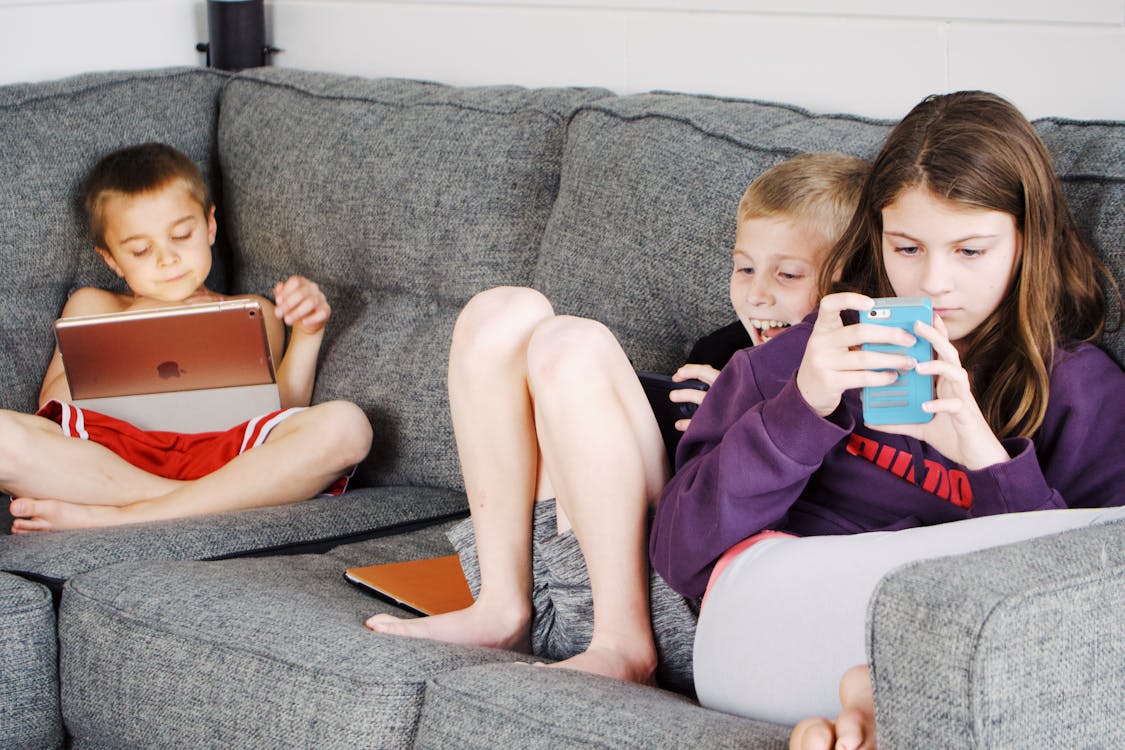Screen Time for Kids: Finding a Healthy Balance
In today's digital age, screens are an integral part of our lives. From educational tools to entertainment, screens offer numerous benefits. However, excessive screen time can have negative effects on children's physical, mental, and emotional well-being. Finding a healthy balance for kids' screen time is crucial for their overall development. In this article, we'll explore the impact of screen time, provide guidelines for different age groups, and offer practical tips to help parents manage their children's screen use effectively.

Understanding the Impact of Screen Time
Physical Health
Excessive screen time can lead to sedentary behavior, which is associated with various health issues such as obesity, poor posture, and eye strain. Encouraging kids to engage in physical activities is essential to counterbalance the time spent on screens.
Mental Health
Prolonged screen exposure, especially to social media, can affect children's mental health. It may lead to increased anxiety, depression, and reduced attention span. Ensuring kids have time away from screens helps promote better mental well-being.
Social Development
While screens can offer social interaction through video calls and social media, they cannot replace face-to-face interactions. Excessive screen time can hinder the development of essential social skills and reduce opportunities for meaningful in-person relationships.
Guidelines for Healthy Screen Time

Infants (0-2 years)
The American Academy of Pediatrics (AAP) recommends avoiding screen time for children under 18 months, except for video chatting. For children aged 18 to 24 months, parents should choose high-quality programming and watch it with their children to help them understand what they're seeing.
Toddlers (2-5 years)
For children aged 2 to 5 years, limit screen time to one hour per day of high-quality programming. Co-viewing with parents is encouraged to help kids understand and apply what they see.
School-Age Children (6-12 years)
For school-aged children, consistent limits on screen time are essential. Aim for no more than 1-2 hours of recreational screen time per day. Ensure that screen time does not interfere with sleep, physical activity, or other essential behaviors.
Teenagers (13-18 years)
Teenagers should also have screen time limits, ideally no more than 2 hours of recreational screen time daily. Encourage teens to engage in various activities and maintain a balance between screen use and other important aspects of life.
Practical Tips for Managing Screen Time
1. Create a Screen Time Schedule

Establish a daily or weekly screen time schedule that includes time for homework, chores, physical activities, and screen use. Having a routine helps children understand the importance of balance and prioritizes non-screen activities.
2. Designate Screen-Free Zones
Make certain areas of your home screen-free, such as the dining room and bedrooms. This encourages children to engage in conversations during meals and promotes better sleep hygiene by keeping screens out of sleeping areas.
3. Encourage Physical Activities
Promote regular physical activities by setting a good example. Encourage kids to participate in sports, outdoor play, and hobbies that don't involve screens. Physical activity is crucial for their overall health and well-being.
4. Use Technology Wisely
Choose high-quality, educational content for screen time. Educational apps, documentaries, and interactive learning platforms can provide valuable learning experiences. Co-view and discuss the content to enhance understanding.
5. Set a Good Example
Children often mimic their parents' behavior. Model healthy screen habits by limiting your own screen time and engaging in screen-free activities. Show them the importance of balancing screen time with other aspects of life.
6. Communicate and Educate
Talk to your children about the reasons for screen time limits. Educate them on the potential negative effects of excessive screen use and the benefits of a balanced approach. Open communication fosters understanding and cooperation.
Conclusion
Finding a healthy balance for kids' screen time is essential for their physical, mental, and social development. By understanding the impact of screen time and implementing practical strategies, parents can help their children develop healthy screen habits that will benefit them throughout their lives. Remember, the goal is not to eliminate screens but to use them wisely and in moderation, ensuring that children lead well-rounded and fulfilling lives.

 Cricket Score Counter
Cricket Score Counter Heads or Tails
Heads or Tails
You have not logged in, please Login to comment.